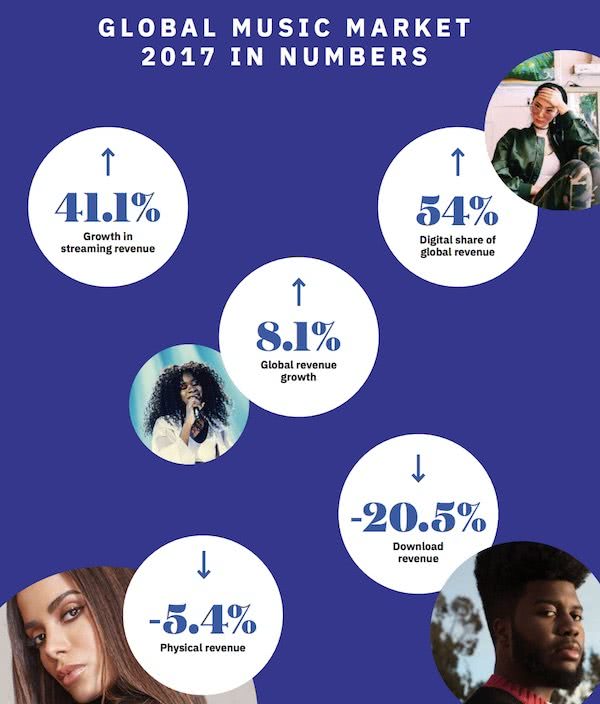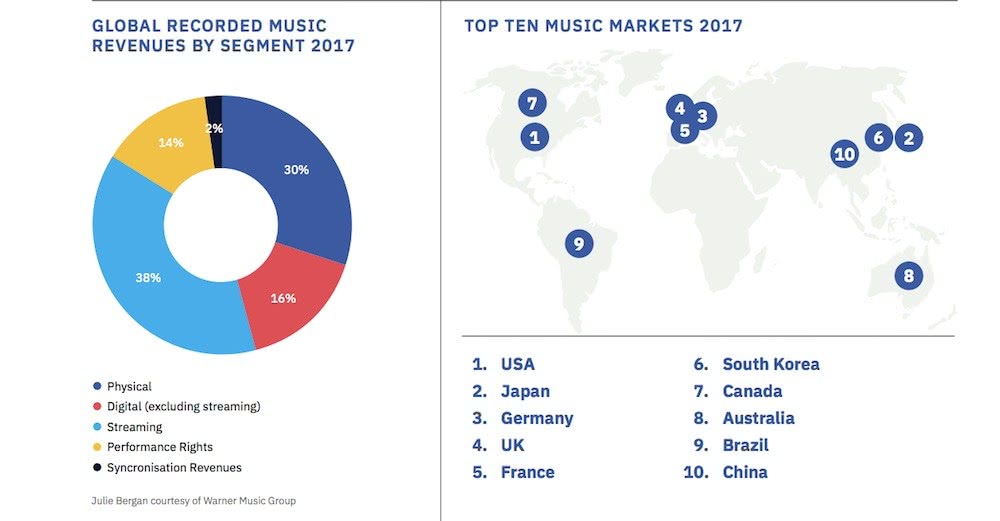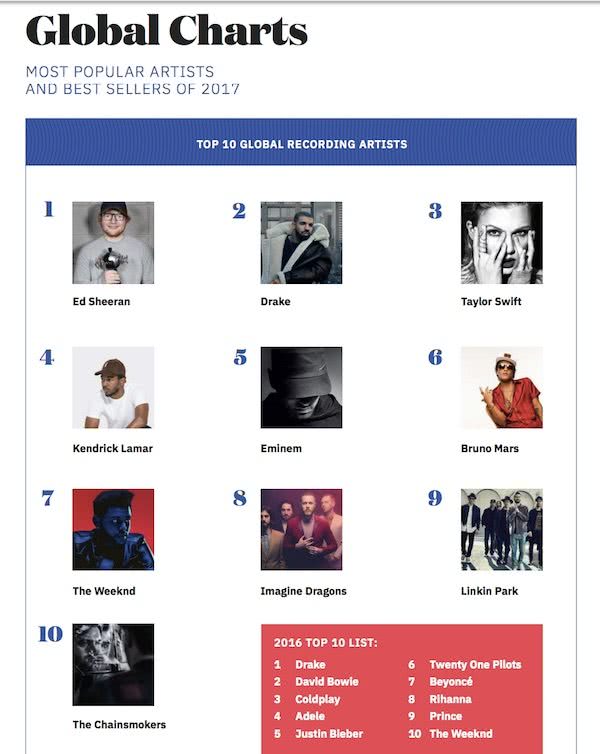IFPI reports 8.1% growth in global revenues in 2017, Australia is looking ‘healthy‘

It’s official: the recorded music industry’s return to growth isn’t just a blip. It just might be a trend.
Fuelled by a spectacular appetite for streaming products, global recorded music revenues last year grew by 8.1% to US$17.3 billion, marking the industry’s third consecutive year of gains.
As music fans clamoured to on-demand platforms, revenue from streaming grew by 41.1% compared with the previous year, according to a new report published by the IFPI.
With more than 176 million paid subscription accounts worldwide, streaming is now the No. 1 source of revenue, generating 38.4% of total revenue. And for the first time, digital platforms in 2017 commanded more than half of all revenue (54%).

Global Music Report (2018)
The results are published in the IFPI’s annual Global Music Report, published late Tuesday.
It’s not such good news for the CD format
Revenues from physical CDs are crumpling in today’s digital world. Physical revenue fell by 5.4%. Permanent downloads fared even worse, reporting a 20% decline. Also down in 2017 was Japan, the world’s No. 2 ranked market, which shrank in 2017 (by 3%) as consumers made the inevitable switch from CDs to digital formats.
On the upside, the vinyl resurgence continues and there are signs music is crossing borders like never before (“Despacito” makes its own case). But make no mistake, the recording industry’s bright new era can be attributed to the power of streaming.
The IFPI report tells a positive story, one which follows a 15-year post-Napster decline. Those dark days appear to be in the rearview. Sources tell TIO global revenue is tracking up so far in 2018, and is perhaps ahead of the growth reported in 2017. But it’s no time to party.
“The industry recovery continues,” IFPI CEO Frances Moore said as the report was presented to international media in a conference call Tuesday night.
“We’re only just over 68% percent of what we were at the peak of the industry back in 1999. So we’ve a lot way to go in the recovery.” Paraphrasing an executive quoted in the report, Moore added, “the race is far from won.”
Moore was joined in the conference call with reps from the three major music companies: Stu Bergen (CEO, International and Global Commercial Services, Warner Music Group), Dennis Kooker (President, Global Digital Business & U.S. Sales, Sony Music) and Adam Granite (Executive Vice President, Market Development, Universal Music Group).
IFPI’s Frances Moore said there was a “structural fault” in the market
In years past, the IFPI has called out the “value gap” as one of the most persistent problems facing the music world. Moore used the platform of the media gathering to again call for creators to be paid fairly for their digitally-distributed works.
“We can’t deliver the path to recovery alone. There’s a structural fault in the market. And we need governments to help us with that. That fault is what we call the value gap,” the mismatch between the value that user upload services extract from music and the revenue returned to creators and investors.
Legislative action was needed, noted the IFPI, which called on the music community to join forces in demanding policymakers take action.
The industry also took a swipe at YouTube and other on-demand platforms which claim “they are not legally responsible for the music they distribute on their site.”
Added Moore, “Record companies are continuing in their efforts to put the industry back onto a stable path and, to that end, we are continuing our campaign to fix the value gap.”

Global Music Report (2018)
Australia saw growth of 13.4% to US$413 million in 2017, driven by a “phenomenal” increase in streaming, at 62%, Moore tells TIO. At the same time, physical dipped by 11%.
Australia’s recorded music market was eclipsed by South Korea in 2017 and is now ranked No. 8 globally. “The Australian market is looking healthy,” she adds.
The State of the Industry report is available for free here.

Global Music Report (2018)
This article originally appeared on The Industry Observer, which is now part of The Music Network.






























